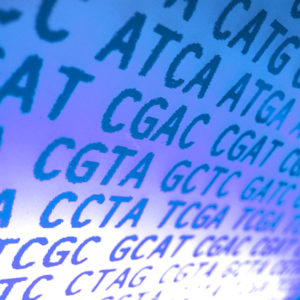Next Generation Sequencing Bioinformatics - Africa
22 March–20 June 2022
Virtual and local classrooms across Africa
Enrol now and learn how to analyse NGS data using the latest bioinformatics tools and resources
Summary
In collaboration with H3ABionet, we are pleased to announce the next iteration of the Next Generation Sequencing Bioinformatics Africa course.
This course will apply a blended learning format consisting of locally coordinated classrooms referred to as “remote classrooms”. Click here for more information. Please note: Due to the COVID-19 pandemic, the local classrooms for this course may run virtually using Zoom.
Next generation sequencing (NGS) has become an essential tool in genetic and genomic analysis. It is increasingly important for experimental scientists to gain the bioinformatics skills required to analyse the large volumes of data produced by next generation sequencers. This course will equip participants with the essential informatics skills required to begin analysing NGS data and apply some of the most commonly used tools and resources for sequence data analysis.
The programme will cover prominent sequencing technologies, algorithmic theory and principles of bioinformatics, with a strong focus on practical computational sessions using sequence analysis techniques and tools applicable to any species or genome size. A variety of applications will be covered from post-sequencing analysis – QC, alignment, assembly, variant calling, RNA-Seq and ChIP-Seq.
Time commitment: Contact sessions will run on Tuesdays and Thursdays lasting for 4 hours per session.
Target audience: The course is aimed at postdoctoral scientists, senior PhD students, junior faculty members or clinicians/healthcare professionals based in Africa who are actively engaged in or soon to commence research involving next generation sequencing data analysis.
Please note: The practical sessions will be taught exclusively through Unix/Linux. Therefore, participants are required to have some previous experience using the Linux operating system. This will be essential for participants to fully benefit from the course. There are numerous online introductory tutorials to the UNIX/Linux operating system and command line, including:
http://www.ee.surrey.ac.uk/Teaching/Unix
http://swcarpentry.github.io/shell-novice/
Current WCS online course:
https://www.futurelearn.com/courses/linux-for-bioinformatics
Download our call for participants poster
Call for Participants information (411KB)Programme
The course will run for 12 weeks on Tuesdays and Thursdays (4 hours per session) from 22 March–20 June 2022
The programme will cover the following core topics:
• Intro to Unix/Linux & running workflows
• Introduction to NGS Technologies
• NGS data pre-processing and QC
• Alignment to reference sequences
• Variant calling and annotation
• ChIP-Seq
• RNA-Seq
• Genome assembly
Bonus topic
Rare diseases variant calling and interpretation
Learning outcomes
On completion of the course, participants should expect to be able to:
• Use the unix command-line as a tool for data analysis
• Describe the different NGS data file formats available
• Perform QC assessment of high throughput sequencing data
• Explain the algorithmic concepts behind read alignment, variant calling and structural variant detection
• Perform read alignment, variant calling and structural variation detection using standard tools
• Analyse RNA-Seq and ChIP-seq data
• Perform a genome assembly using NGS data
Course instructors
Course instructors
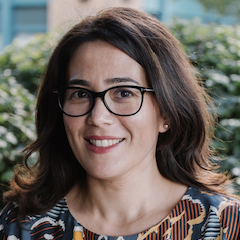
Amel Ghouila
Bill & Melinda Gates Foundation, USA
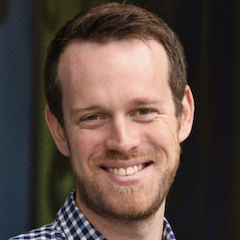
Eugene Gardner
Wellcome Sanger Institute, UK
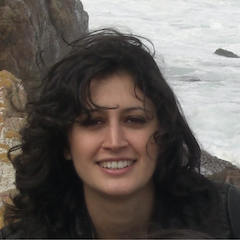
Fatma Guerfali
Institut Pasteur de Tunis, Tunisia
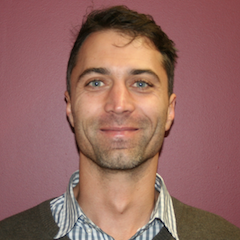
Gerrit Botha
University of Cape Town, South Africa
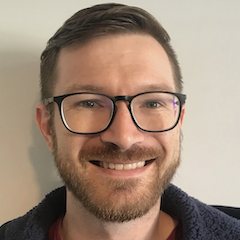
Jon Ambler
University of Cape Town, South Africa
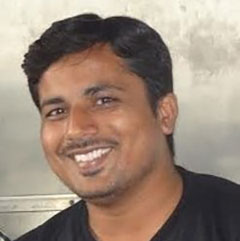
Narender Kumar
Wellcome Sanger Institute, UK
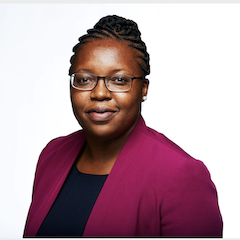
Nyasha Chambwe
St. Jude Children's Research Hospital, USA
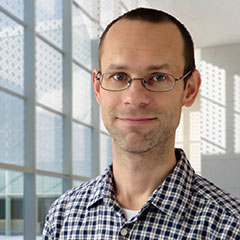
Petr Daněček
Wellcome Sanger Institute, UK

Phelelani Mpangase
University of the Witwatersrand, South Africa
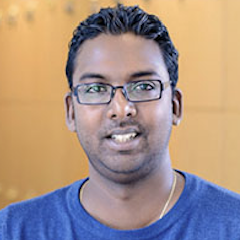
Shaun Aron
University of the Witwatersrand, South Africa
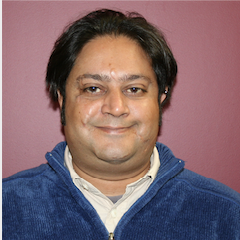
Sumir Panji
University of Cape Town, South Africa

Vivek Iyer
Wellcome Sanger Institute, UK
How to apply
Participant applications
To apply to participate on the course, please use the Apply button above. Participants are expected to attend contact sessions twice a week, complete practical exercises and assignments, and put knowledge to the test in assessments.
Applications must be received by 21 February 2022. No late applications will be accepted.
Candidate prerequisites:
The course is aimed at postdoctoral scientists, senior PhD students, junior faculty members or clinicians/healthcare professionals based in Africa who are actively engaged in or soon to commence research involving next generation sequencing data analysis.
Priority will be given to applicants who:
1) currently or will soon have NGS experimental data to analyse
2) will utilise the bioinformatics techniques taught in at least two of the modules/topic areas listed in the programme outline in their experiments
3) have a clear plan/opportunity to disseminate the knowledge amongst their peers. We encourage applicants to highlight these areas in their application.
The practical sessions will be taught exclusively through Unix/Linux. Therefore, participants are required to have some previous experience using the Linux operating system. This will be essential for participants to fully benefit from the course. There are numerous online introductory tutorials to the UNIX/Linux operating system and command line, including:
Cost
The course is subsidised by Wellcome Connecting Science Courses and Conferences.
Testimonials
Feedback from 2021 course
“I enjoyed every aspect of the course. The transitioning between modules was exceptional.”
“Since this is my first time to take a bioinformatics course, this course real helped me to get a better insight by taking the right steps in introducing the meaning, tools used and the techniques of bioinformatics. I really admire how the course was organized and how the lecturers and the coordinators were very dedicated.”
“I have enjoyed the whole manipulation from raw sequence up to obtaining a biological meaning from the sequenced data. The idea of a virtual machine was awesome and it provided real hands on experience. I have literally enjoyed every module time being the worst ally here.”
Classroom hosts
| Hosting country: | Name of institution: |
| Burkina Faso | University NAZI BONI |
| Burkina Faso | Clinical Research Unit of Nanoro and Plateforme Bioinformatique de l’Université Joseph Ki-Zerbo de Ouagadougou |
| Cameroon | Bioinformatics & Biostatistics Hub (B2Hub), Biotechnology Center, UYI |
| Egypt | Zagazig University “ECBAG” |
| Egypt | American University in Cairo |
| Egypt | Suez Canal University |
| Egypt | Animal Health Research Institute(AHRI) |
| Egypt | National Research Centre |
| Egypt | Collage of Biotechnology, Misr University for Science and Technology (MUST) |
| Ethiopia | Hawassa University |
| Ethiopia | Ethiopian Biotechnology Institute |
| Ghana | Kwame Nkrumah University of Science and Technology |
| Ghana | West African Centre for Cell Biology of Infectious Pathogens, University of Ghana |
| Kenya | International Center of Insect Physiology and Ecology |
| Kenya | Moi University |
| Kenya | Masinde Muliro University of Science and Technology |
| Mali | University of Sciences, Technologies and Techniques of Bamako (USTTB) |
| Mauritius | University of Mauritius |
| Morocco | Institut Pasteur du Maroc (IPM) |
| Morocco | UM6SS |
| Morocco | ENSIAS |
| Morocco | UM5 |
| Nigeria | Covenant University |
| Nigeria | Helix Biogen Institute |
| Nigeria | Global Health Research Unit for the Genomic Surveillance of Antimicrobial Resistance, University of Ibadan, Ibadan, Nigeria |
| Nigeria | Usmanu Danfodiyo University, Sokoto |
| Nigeria | NATIONAL BIOTECHNOLOGY DEVELOPMENT AGENCY |
| Nigeria | Landmark University |
| Nigeria | Nigeria Centre for Disease Control |
| Nigeria | International Institute of Tropical Agriculture, Ibadan, Nigeria |
| Senegal | Faculty of Medicine, Pharmacy and Odontology, University Cheikh Anta Diop |
| Senegal | University Cheikh Anta Diop |
| South Africa | University of the Witwatersrand |
| South Africa | University Of KwaZulu Natal |
| Sudan | Institute of Endemic Diseases, UofK |
| Sudan | H3ABioNet Sudan Node |
| Sudan | Unvirsity of bahri |
| Tanzania | Dar es Salaam Institute of Technology in collaboration with Tanzania Human Genetics Organization |
| Uganda | The African Centre of Excellence in Bioinformatics and Data Intensive Sciences, Makerere University |
| Zimbabwe | African Institute of Biomedical Sciences |
